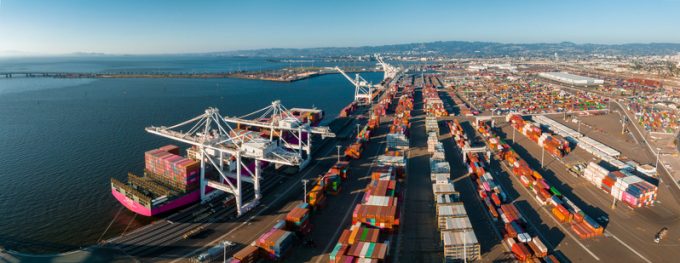Deal talk, new partners and codswallop in logistics
It’s a wrap…

Japanese container shipping line ONE has cemented its grip on its nascent port terminal network after completing the acquisition of a 51% stake in a series of TraPac and Yusen terminals in North America and Singapore.
It also completed the purchase of 20% stake in the ...
MSC switches two more Asia-Europe port calls from congested Antwerp
Front-loading frenzy has made traditional H2 peak season 'unlikely'
Canada and Mexico get cosy with trade plan to bypass US
Tradelanes: Export boom in Indian sub-continent triggers rise in airfreight rates
Carriers introduce surcharges as congestion builds at African ports
Mexican airport modernisation plan unlikely to boost cargo facilities
Ports and supply chain operators weigh in on funding for CPB
Tradelanes: Overcapacity on Asia-S America impacting alliances and rates

Comment on this article